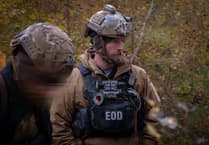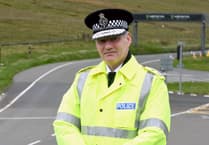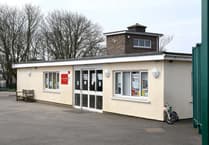Twenty years ago on Sunday, August 31, 1997, the world woke up to the news that Diana, Princess of Wales had been killed in a car crash in Paris. For First Deemster Jack Corrin and his wife Pat that meant a trip to London to represent the Isle of Man at her funeral.
Now retired, Mr Corrin has been reflecting on that historic event.
The reaction to the Princess’ death was every bit as strong and emotional here as it had been everywhere else.
Her enormous popularity and the shock people felt at the time - and the scale of it - is a hard thing to explain to anyone who is too young to remember.
On the island, books of remembrance were opened and one at Government House had 1,000 signatures in the first two days.
Manx Telecom took more than 5,000 calls pledging money for the Diana Memorial Fund.
In London thousands and thousands of people had arrived to pay their respects and lay a carpet of flowers around Buckingham Palace and the Mall.
Amidst this atmosphere of shock and chaos a funeral had to be arranged.
It was set for the following Saturday, September 6 and it was to be held at Westminster Abbey.
The Lieutenant Governor and his wife would normally have represented the Isle of Man at such an occasion but they were away in Turkey.
As First Deemster, Jack Corrin was also Deputy Governor so he and his wife Pat became the only two guests from the island among the 2,000 invited.
Pat later wrote a first hand account of the occasion.
Here are some of the things she remembered which wonderfully conjure up the atmosphere at the time:
’London was full but thanks to local help we managed to obtain a room in the Royal Airforce Club in Picadilly. Of course a limousine was at our disposable throughout the two days.
’Saturday morning was an incredible experience. The moment of pride seeing the Manx three legs pennant on our car. The streets were closed to traffic but there was a definite feeling of mutiny and unthinkable revolution in the air. The people of London had not been pleased with the royal reaction.
’The atmosphere was one of chilling foreboding: the roads were silent and people were making their way down Victoria Street in sober mood.
’We alighted at the Abbey and joined the queue to enter through the Great West Door, tickets in hand.
’Suddenly as we approached the door we realised we were walking just behind Baroness Thatcher and Sir Denis.’
As the cameras had picked up the Thatchers they also caught the Corrins in shot so they were seen by the estimated 1.4 billion people who were watching around the world.
They were even spotted by their cousins in New Zealand who telephoned later to tell them.
Pat went on: ’We had excellent seats in the Abbey near the Great West Door and were able to see everyone who entered and passed us on the way up the aisle.
’We saw European royals, High Commissioners, film stars, the wives of the US president and the French president, then five British Prime Ministers passed by: Lord and Lady Callaghan, Sir Edward Heath, Lady Thatcher with Sir Denis, John and Norma Major, and Tony and Cherie Blair.
’There were hundreds of representatives of charities with which Diana had been associated and then of course the members of the royal family and the Princess’ family.
The sprightly Queen Mother, then a mere 97, walked smartly past.
We knew when the Queen was about to enter for we could hear applause outside.’
Sadly, Pat Corrin now suffers from dementia and cannot recall the funeral herself but Jack Corrin has compiled a scrapbook of all the memorabilia she collected at the time and it’s a fascinating historical collection.
It includes their invitation to the event, the running order and a letter from the Queen’s private secretary, Sir Robert Fellowes, thanking Mr Corrin and the people of the Isle of Man for their letter of condolence.
There is also a newspaper cutting with the complete text of Earl Spencer’s impassioned eulogy, something which stands out in many people’s minds because of its sharp criticism of the media and, to a lesser degree, the Royal Family for not protecting Diana better.
It was controversial at the time but Mr Corrin says: ’Having read it again now I don’t think it was so bad - he was just grieving for his sister.’
And, in summing up the day and how he feels about it looking back he adds: ’From a personal point of view, although it was a tragic and totally unexpected happening, Pat and I were both fortunate to have been there to witness this historic occasion.’

.jpeg?width=209&height=140&crop=209:145,smart&quality=75)



Comments
This article has no comments yet. Be the first to leave a comment.